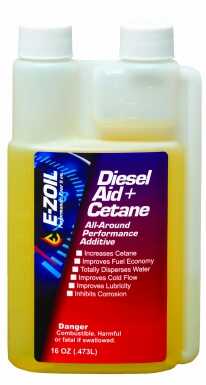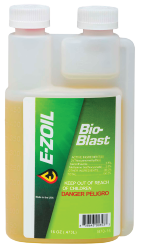ULTRA LOW SULFUR DIESEL BASICS
INTRODUCTION
Ultra Low Sulfur Diesel (ULSD) is defined by the U.S. Environmental Protection Agency (EPA) as diesel fuel with a maximum sulfur content of 15 ppm (parts per million).
ULSD & EPA REGULATIONS
The EPA has the authority to regulate diesel fuel and recently mandated a reduction in the sulfur content of diesel fuel from 500 ppm to 15 ppm, a 97% reduction compared to low sulfur diesel. The mandate for on-road diesel fuel went into effect at the refinery level on June 1st, 2006; at the terminal level on September 1st, 2006; and at the retail level on October 15th, 2006. The EPA mandate went into effect for non-road, locomotive, and marine (NRLM) diesel fuel on June 1st, 2007.
The ULSD mandate required not only that the sulfur content of on-road diesel fuel use is drastically reduced, but also that emission controls on heavy-duty diesel engines be imposed to dramatically reduce emissions of nitrogen oxides (NOx), particulate matter (PM), and hydrocarbons (HC).
LABEL REQUIREMENTS
The EPA mandate includes label requirements that affect retailers of diesel fuel and manufacturers of diesel fuel additives.
Diesel fuel retailers are required to prominently display on the fuel pump the following statement: "15 ppm sulfur maximum" provided the fuel meets the EPA standard.
Diesel fuel additive manufacturers that comply with the EPA mandate are required to prominently display on the product label "This diesel fuel additive complies with federal low sulfur content requirements for use in diesel motor vehicles and nonroad engines." Diesel fuel additives that do not meet the EPA mandate should not be used with ULSD.
ADVANTAGES OF ULSD
There are a number of advantages to using ULSD. ULSD will result in a reduction of acid rain and ozone-depleting chemicals. The EPA estimates that ULSD will lead to improved air quality which will translate into a reduction in the incidents of asthma and lung cancer. ULSD is required in 2007 and newer diesel engines to allow fuel injection equipment to operate properly and prevent catalytic converter and diesel particulate filter plugging. These devices can be damaged by as little as 30 ppm of sulfur.
DISADVANTAGES OF ULSD
There are many disadvantages to ULSD even after taking into consideration the many environmental benefits.
- ULSD will substantially increase diesel fuel and engine costs. ULSD will cost approximately $0.05 to $0.09 more per gallon than LSD. Model year 2007 and newer diesel engines are required to use ULSD and, as a result, will cost approximately $8k more per medium-duty truck and $10k more per heavy-duty truck.
- ULSD contains lower energy content than LSD. ULSD has approximately 1% to 2% less BTU's than LSD. This translates into an additional $500 in fuel costs for every 100,000 miles driven.
- ULSD contains substantially reduced levels of lubricity. Natural lubricity is provided by oxygen and nitrogen compounds, aromatics, hydrocarbons, and sulfur. The refining process reduces many of these chemicals. Engine and fuel systems rely heavily on lubricity for proper operation. Insufficient lubricity leads to premature failure of wear-related fuel system components, including fuel pumps and injectors.
- ULSD has poor cold flow characteristics. This arises from the reduction in aromatic content, which increases the propensity of the fuel to gel/wax because aromatics keep wax crystals in solution. ULSD will, therefore, have a higher pour point and Cold Filter Plugging Point (CFPP). Lower aromatic content can also cause premature failure of some rubber components like gaskets and seals.
- ULSD is a hygroscopic fuel. This means it absorbs water from the atmosphere. Water wreaks havoc in diesel fuel systems causing corrosion and failure of metal components such as fuel tanks, pumps, and injectors. Water leads to microbial contamination which results in plugged fuel lines and filters. In cold climates, water freezes resulting in a reduced power or total engine shutdown.
CONCLUSION
ULSD is the fuel of the future. But, the fuel of the future has some notable disadvantages. These disadvantages can be overcome by treating fuel with diesel fuel additives. E-ZOIL manufactures a number of diesel fuel additives specifically formulated to disperse water, improve cold flow, and increase the lubricity of ULSD. All E-ZOIL diesel fuel additives are ULSD compliant.
 |
 |
 |
 |
 |
 |
 |
